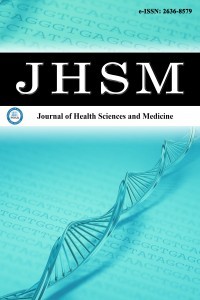1.
Feigerlova E, Hani H, Hothersall-Davies E. A systematic review of the impact of artificial intelligence on educational outcomes in health professions education. BMC Med Educ. 2025;25:129. doi:10.1186/s12909-025-06719-5
2.
Ennab F, Farhan H, Zary N. Generative artificial intelligence and its role in the development of clinical cases in medical education: a scoping review protocol. Preprints. 2025. doi:10.20944/preprints202501.1031.v1
3.
Preiksaitis C, Rose C. Opportunities, challenges, and future directions of generative artificial intelligence in medical education: scoping review. JMIR Med Educ. 2023;9:e48785. doi:10.2196/48785
4.
Koçak B, Ponsiglione A, Stanzione A, et al. Bias in artificial intelligence for medical imaging: fundamentals, detection, avoidance, mitigation, challenges, ethics, and prospects. Diagn Interv Radiol. 2025;31(2):75-88. doi:10.4274/dir.2024.242854
5.
Colton S, Hatcher T. The web-based Delphi research technique as a method for content validation in HRD and adult education research. Online Submission. 2004.
6.
Hicke Y, Geathers J, Rajashekar N, et al. MedSimAI: simulation and formative feedback generation to enhance deliberate practice in medical education. arXiv preprint arXiv:2503.05793. 2025. doi:10.48550/arXiv.2503.05793
7.
Hersh W. Generative artificial intelligence: implications for biomedical and health professions education. arXiv preprint arXiv:2501.10186. 2025. doi:10.48550/arXiv.2501.10186
8.
Mir MM, Mir GM, Raina NT, et al. Application of artificial intelligence in medical education: current scenario and future perspectives. J Adv Med Educ Prof. 2023;11(3):133-140. doi:10.30476/JAMP.2023.98655.1803
9.
Barile J, Margolis A, Cason G, et al. Diagnostic accuracy of a large language model in pediatric case studies. JAMA Pediatr. 2024;178(3):313-315. doi:10.1001/jamapediatrics.2023.5750
10.
Narayanan S, Ramakrishnan R, Durairaj E, Das A. Artificial intelligence revolutionizing the field of medical education. Cureus. 2023;15(11):e49604. doi:10.7759/cureus.49604
11.
Johnson D, Goodman R, Patrinely J, et al. Assessing the accuracy and reliability of AI-generated medical responses: an evaluation of the Chat-GPT model. Res Sq [Preprint]. 2023:rs.3.rs-2566942. doi:10.21203/rs.3.rs-2566942/v1
12.
Law AK, So J, Lui CT, et al. AI versus human-generated multiple-choice questions for medical education: a cohort study in a high-stakes examination. BMC Med Educ. 2025;25(1):208. doi:10.1186/s12909-025-06796-6
13.
Al Shuraiqi S, Aal Abdulsalam A, Masters K, Zidoum H, AlZaabi A. Automatic generation of medical case-based multiple-choice questions (MCQs): a review of methodologies, applications, evaluation, and future directions. Big Data Cogn Comput. 2024;8(10):139. doi: 10.3390/bdcc8100139
</ol>
</div>
<p>

